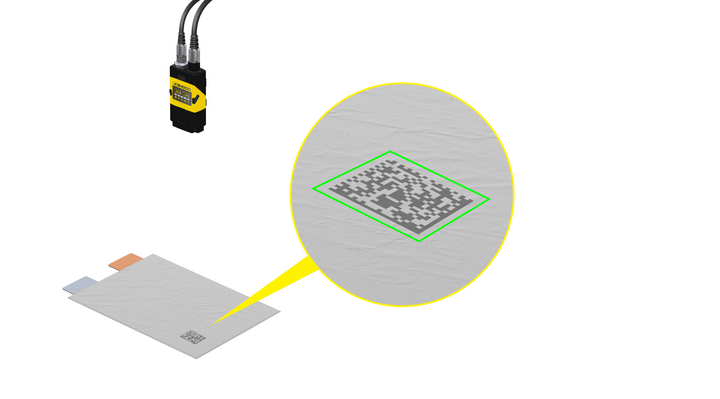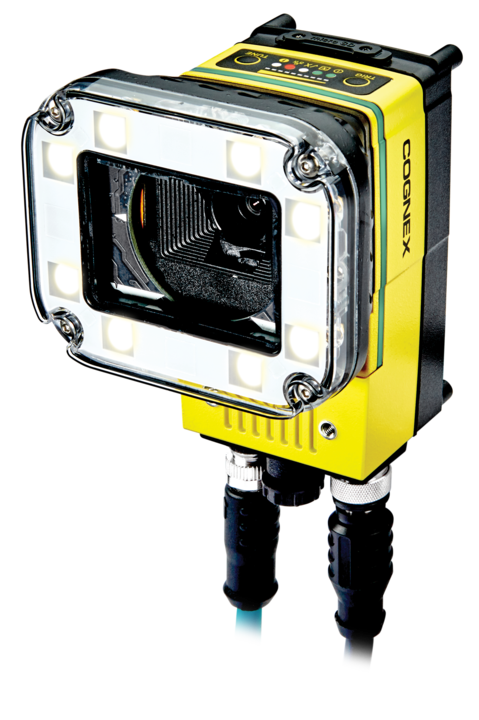Automated tote inspection and sortation for meal prep manufacturer
We recently installed our tote inspection solution for one of the UK’s largest meal-prep brands. The ToteInspect system uses deep learning vision technology to automate the inspection of used totes so that only dirty or contaminated totes are sent for washing, delivering savings on energy and water use.
Cutting costs and saving energy by reducing excessive tote washing

Cognex Dataman 260
- Fully automated tote inspection system
- Capable of detecting a single grain of sugar
- Can process one tote every 800ms
- Reduces excess energy and water consumption
Delivering automated quality control at 130-metres per minute
The Challenge
When fitting out its new packing and distribution facility, the meal-prep company needed a solution to inspect and sort used totes before cleaning for reuse.
Totes are used on site to collect and package up meal-prep orders. Once the ingredients are boxed up for distribution, the used totes need to be inspected for any food waste or spillages, to prevent contamination or product damage.
Traditionally, sites have installed large washing facilities to clean every tote after use, regardless of condition. This takes significant extra power and water consumption to run. At a time when energy prices have reached record highs, and with sustainability also front of mind, the company contacted us for help with an automated solution.
Automating tote inspection and sortation

Cognex D900
Our Solution
Our solution, ToteInspect, uses deep learning technology to automatically recognise and sort clean and contaminated totes on the conveyor, so that only those totes that need cleaning are sent for washing.
Combining Cognex D900 smart cameras with In-Sight ViDi deep learning software, the system captures an image of each tote as it passes along the line, analyses its contents and identifies which totes need cleaning, so the line can automatically divert them for washing.
Fixed over the conveyor, a Cognex D900 camera inspects inside each tote as it passes through the line. The ViDi deep learning software system then uses previously taught examples to know when to divert dirty totes to a separate conveyor for washing.
A Cognex DataMan 260 barcode reader placed at the side of the conveyor system reads the identification (ID) barcodes on each tote. This allows the system to lock the tote’s ID to its content inspection image to ensure dirty totes are correctly identified and diverted.
Clean totes meanwhile pass through the inspection station and continue along the conveyor to be recirculated for use within the facility.
Deep learning for precise and intelligent vision inspections
ToteInspect is highly accurate and can detect the smallest of items inside totes such as a single grain of sugar. The intelligent deep learning system can also distinguish flat objects or clear liquids, on the base of the tote, such as water. This is important for ensuring food spillages are not missed to prevent meal kit contamination.
Over time, plastic totes can and will get damaged and change appearance as a result of general wear and tear. Because traditional vision systems operate on a strict pass or fail system, they cannot accommodate for acceptable variations caused by natural degradation of the plastic, leading to false rejects that get cleaned unnecessarily.
The deep learning inside ToteTracker learns what natural tote degradation looks like over time – so it can ignore any changes in the plastic and focus instead on any food items or spillages.
As well as being highly accurate, the system can be quickly modified to carry out other inspections in future, such as tote damage.
Faster tote inspections and large cost savings
The Results
Now operational, the ToteInspect system is capable of processing one tote every 800 milliseconds. For the meal-prep company, the system is inspecting and sorting 5,600 totes every hour across two conveyor lines, presenting a significant time saving compared to manual inspections.
It has also reduced the cost – both financial and environmental – of tote washing. The meal-prep company has saved on the price of expensive in-line wash facilities, reduced its energy use and saved on water consumption by only washing the totes that need cleaning.

